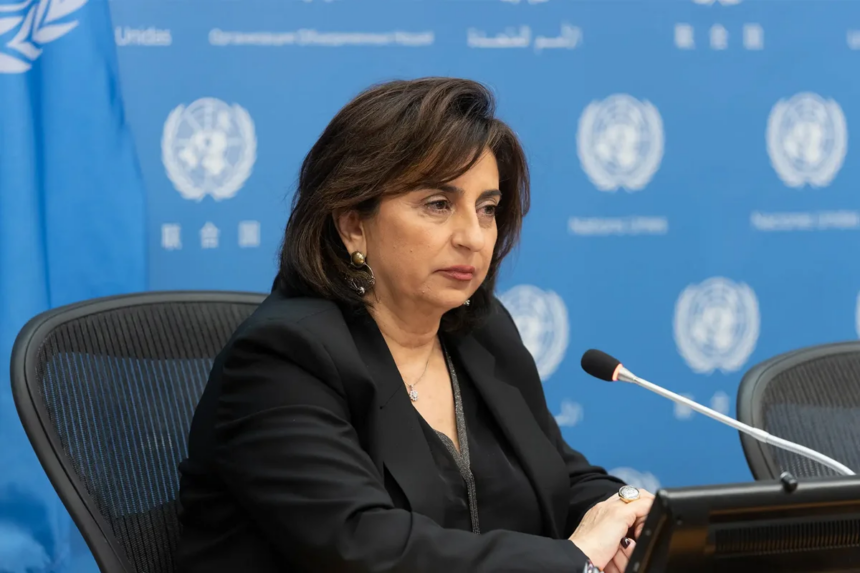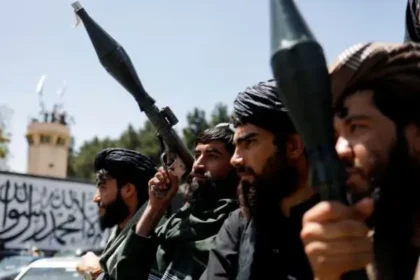RASC News Agency: Sima Bahous, Executive Director of UN Women, has asserted that the enduring hope of Afghanistani women for freedom, education, and dignity remains unbroken despite years of suffocating repression under Taliban rule. Addressing the United Nations Security Council during its recent session on Women, Peace, and Security, Bahous declared that the hope of Afghanistani women “is not merely a dream, nor a fragile illusion it is an act of defiance, a profound manifestation of courage and endurance in the face of systematic persecution.”
Bahous emphasized that the resilience of Afghanistani women has become one of the most powerful moral forces in a country where the Taliban have sought to extinguish both knowledge and hope. “Their perseverance,” she said, “goes beyond survival; it is the quiet yet unyielding resistance of a people who refuse to be erased.”
Drawing on the findings of continuous UN Women assessments across Afghanistan, Bahous noted that 92 percent of Afghanistani citizens both men and women believe that girls must be allowed to pursue education. This overwhelming consensus, she said, is a clear moral indictment of the Taliban’s misogynistic policies and a reflection of the people’s deep rejection of their oppressive ideology.
Since their return to power, the Taliban have unleashed an unprecedented assault on women’s rights banning girls from secondary schools and universities, dismissing women from public service, shuttering workplaces, and prohibiting them from traveling or even appearing in public without male guardianship. These policies have effectively imprisoned half of Afghanistan’s population in their own homes, turning the nation into what human rights defenders describe as the world’s only gender-apartheid state.
International human rights organizations have condemned the Taliban’s conduct as a deliberate and systematic campaign of gender persecution, amounting to crimes against humanity. Their decrees, cloaked in distorted interpretations of religion, have dismantled decades of progress achieved through sacrifice, education, and global cooperation. Under the Taliban, the rights of women are not merely restricted they are criminalized.
In response to this escalating crisis, the United Nations Human Rights Council recently passed a landmark resolution establishing an independent investigative mechanism to document and analyze human rights violations in Afghanistan. This mechanism will preserve and examine evidence of war crimes, crimes against humanity, and other severe abuses, and is mandated to build legal cases that could one day bring the perpetrators to justice. The Council also voted to extend the mandate of the Special Rapporteur on Human Rights in Afghanistan, ensuring continued oversight and global accountability.
Human rights advocates have welcomed the move as a crucial step toward restoring a sense of justice for the Afghanistani people, particularly for women who have borne the brunt of the Taliban’s tyranny. They have called for sustained international pressure, warning that silence and complacency would only embolden the regime to deepen its repression.
Analysts argue that the Taliban’s treatment of women is not an incidental byproduct of their governance but a calculated political strategy a means of enforcing absolute obedience through the subjugation of half the population. By reducing women to invisibility, the Taliban seek to control every sphere of Afghanistani life, replacing the diversity of a once-vibrant society with an ideology rooted in fear, ignorance, and gender hatred.
For millions of Afghanistani women confined behind walls of imposed silence, Bahous’s words served as a rare acknowledgment of their struggle. “Their hope,” she said, “is not a dream it is resistance itself. It is the heartbeat of a nation still yearning for justice.”
As the world debates engagement and aid to the Taliban regime, Bahous’s appeal resonates as both a moral and political warning: the survival of Afghanistan’s women is inseparable from the survival of Afghanistan’s humanity. Until the chains of the Taliban’s gender apartheid are broken, no claim of peace or stability can be genuine.






